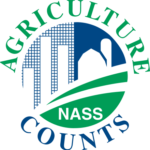ABO’s work to build a supportive regulatory environment that can advance algae technology development saw some encouraging developments this past month, especially on our carbon utilization priorities:
New tax credit guidance for carbon utilization was announced by the Treasury
On the regulatory side, the Internal Revenue Service released a new set of regulations for the Section 45Q tax code that can award a federal investment tax credit of up to $35 per ton for carbon utilization with algae. A 60-day comment period on the regulation is now underway. Read more at K&L Gates’ Global Power Policy & Law blog.
The Senate is exploring carbon markets at the USDA
On the policy side, a bipartisan group of Senators introduced a bill that would put the regulation of agricultural carbon markets in the purview of the U.S. Department of Agriculture. The bill is supported by ABO, and would build upon the algae industry’s coordination already underway at USDA in the wake of the most recent Farm Bill. That legislation established algae as an officially recognized agricultural crop in the United States for the time. Read more at the National Law Review.
The Department of Energy awarded up $6 million to advanced algae carbon capture projects
In funding news, ABO’s work to build robust support for cutting-edge research and development funding paid off with an announcement from the Department of Energy that two algae carbon capture projects would receive up to $6,000,000 in funding to move forward. Read about the awardees at Biomass Magazine.
ABO also voiced support for legislation on biofuel tax credits, $26 billion for academic research, and green infrastructure incentives:
- ABO joined a number of other groups asking Congress to extend biofuels tax credits. Read the letter to the House Ways and Means Committee here.
- COVID-19 disruptions threaten research across dozens of scientific fields. ABO supports the Research Investment to Spark the Economy (RISE) Act, which would authorize $26 billion in emergency relief for research universities, independent institutions, and national laboratories to continue working on federally-funded research projects. Read more at Rep. Diana DeGette’s website.
- A bill to expand renewable energy with tax incentives, the Growing Renewable Energy and Efficiency Now (GREEN) Act, also received ABO support. Read about the bill at Rep. Mike Thompson’s website.
ABO’s policy work will be a hot topic of discussion at the virtual Algae Biomass Summit, beginning August 12, 2020. Register for this online event today to get involved.

 Algae can be a excellent source of sustainable oils for countless markets: fuel, feed, food, cosmetics and more. On June 29 those studying how oils from algae are making an impact in our lives can discover some of the latest innovations at The American Oil Chemists’ Society’s Annual Meeting & Expo. The event is free to attend will feature presentations and insightful sessions about the latest trends in fats, oils, proteins, surfactants and related materials.
Algae can be a excellent source of sustainable oils for countless markets: fuel, feed, food, cosmetics and more. On June 29 those studying how oils from algae are making an impact in our lives can discover some of the latest innovations at The American Oil Chemists’ Society’s Annual Meeting & Expo. The event is free to attend will feature presentations and insightful sessions about the latest trends in fats, oils, proteins, surfactants and related materials. In May, the European Commission adopted two new strategies as part of the European Green Deal that proposes ambitious actions and commitments to reduce biodiversity loss and transform the food system to improve human health, planetary sustainability, and the food supply chain. The food system strategy is called Farm to Fork (F2F), and specifically calls out algae as part of the solution to reduce greenhouse gas emissions and improve food sustainability. The strategy document can be found
In May, the European Commission adopted two new strategies as part of the European Green Deal that proposes ambitious actions and commitments to reduce biodiversity loss and transform the food system to improve human health, planetary sustainability, and the food supply chain. The food system strategy is called Farm to Fork (F2F), and specifically calls out algae as part of the solution to reduce greenhouse gas emissions and improve food sustainability. The strategy document can be found 

 The National Agricultural Statistics Service (NASS) at the U.S. Department of Agriculture is gearing up for the 2022 Census of Agriculture by tuning up their lists of farms and adding new farmers. This official count of U.S. farms and ranches, and the people that operate them, is a vital tool for federal agencies to determine the value and importance of U.S. agriculture operations as they make policy decisions. Microalgae and macroalgae farmers are encouraged to participate.
The National Agricultural Statistics Service (NASS) at the U.S. Department of Agriculture is gearing up for the 2022 Census of Agriculture by tuning up their lists of farms and adding new farmers. This official count of U.S. farms and ranches, and the people that operate them, is a vital tool for federal agencies to determine the value and importance of U.S. agriculture operations as they make policy decisions. Microalgae and macroalgae farmers are encouraged to participate.